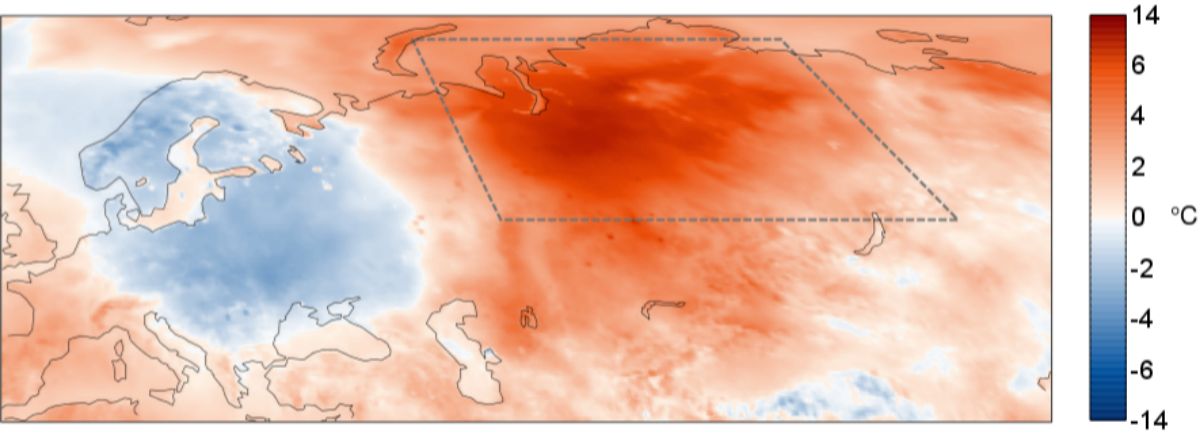- According to Ecologists in Action. 94% of Spaniards breathed polluted air in 2019
- 2019.A year of extreme events
The Arctic has registered a record temperature of 38 degrees in the town of Verkhoyansk, in the heart of Siberia, where thermometers rise to a maximum of 20 degrees in June. The new record - for lack of final verification - occurred last Saturday at the height of the summer solstice and in a prolonged heat wave in eastern Russia.
According to measurements from the European Copernicus satellite program, average temperatures in March, April and May in the Arctic have been 10 degrees above average. In early June, parts of Siberia already registered 30 degrees, and in May a record was reached for that time of year with 25 degrees in the town of Khatanga.
"The Arctic is warming faster than any other part of the planet," Dann Mitchell, professor of atmospheric science at the University of Bristol , told the BBC. "It is not surprising that records are being broken in this region: we will see more similar situations in the future."
A very vulnerable region
The Verkhoyansk record, with a temperature of 18 degrees above normal at this time, has however triggered all alarms. The Arctic is estimated to have warmed twice as much as the rest of the planet in the last thirty years, although 2019 had been a relative relief, with 0.9 degrees above usual.
The high temperatures recorded on land are affecting to a lesser extent the Arctic ice cap. The extension registered in May was 12.36 million square kilometers, the fourth lowest record so far this century, well above however the minimums recorded in 2012 and more recently in 2016, which continues to figure as the hottest year in recent history.
The British Met Office estimates that there is a 50% chance that 2020 will once again set the record for the warmest year. Much of northern Europe and Asia have recorded temperatures 10 degrees above normal in spring. The United Kingdom, where thermometers will rise above 30 degrees this week, has already experienced two unusual heat waves before the arrival of summer.
"Year after year we are experiencing record temperatures," says Professor Chris Rapley of University College London. "We are upsetting the balance of the planet. Earth is sending us warning messages: we are ignoring them as if we don't care about the risks."
In 2020, temperature records have also been recorded in Antarctica in the middle of the southern summer. On February 6, 18.3 degrees were reached at the Argentine base Esperanza, on continental soil. Three days later, it reached 20.75 degrees on the island of Seymour. In contrast to the Arctic, the icy surface in the Antarctic had remained until the middle of the past decade. The shedding of the giant A68 iceberg, in 2017, was however interpreted as the possible turning point and the unmistakable sign that warming is accelerating at the South Pole as well.
In accordance with the criteria of The Trust Project
Know more- Climate change
- science
- Science and health
Environment War on single-use plastics: they cannot be sold from July 2021
InterviewGeorgina Mace: "It is time to 'reset' our relationship with nature"
EnvironmentCities surrender to cycling in de-escalation
See links of interest
- News
- Translator
- Programming
- Calendar
- Horoscope
- Classification
- League calendar
- Films
- Cut notes
- Themes
- Multiple sclerosis
- Real Madrid - Valencia Basket
- Villarreal - Seville
- Fiorentina - Brescia
- Lecce - Milan
- Levante - Atlético de Madrid, live

